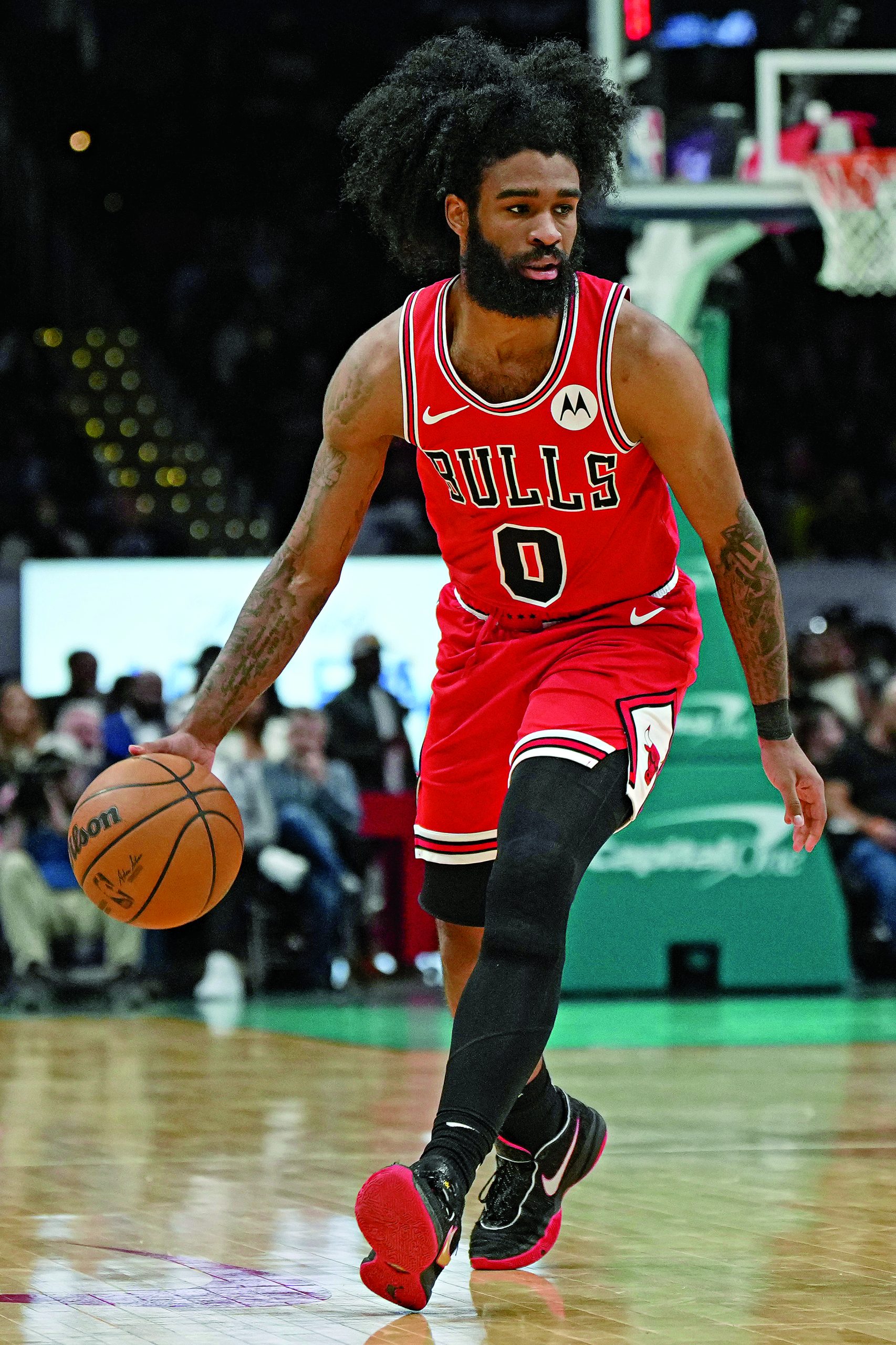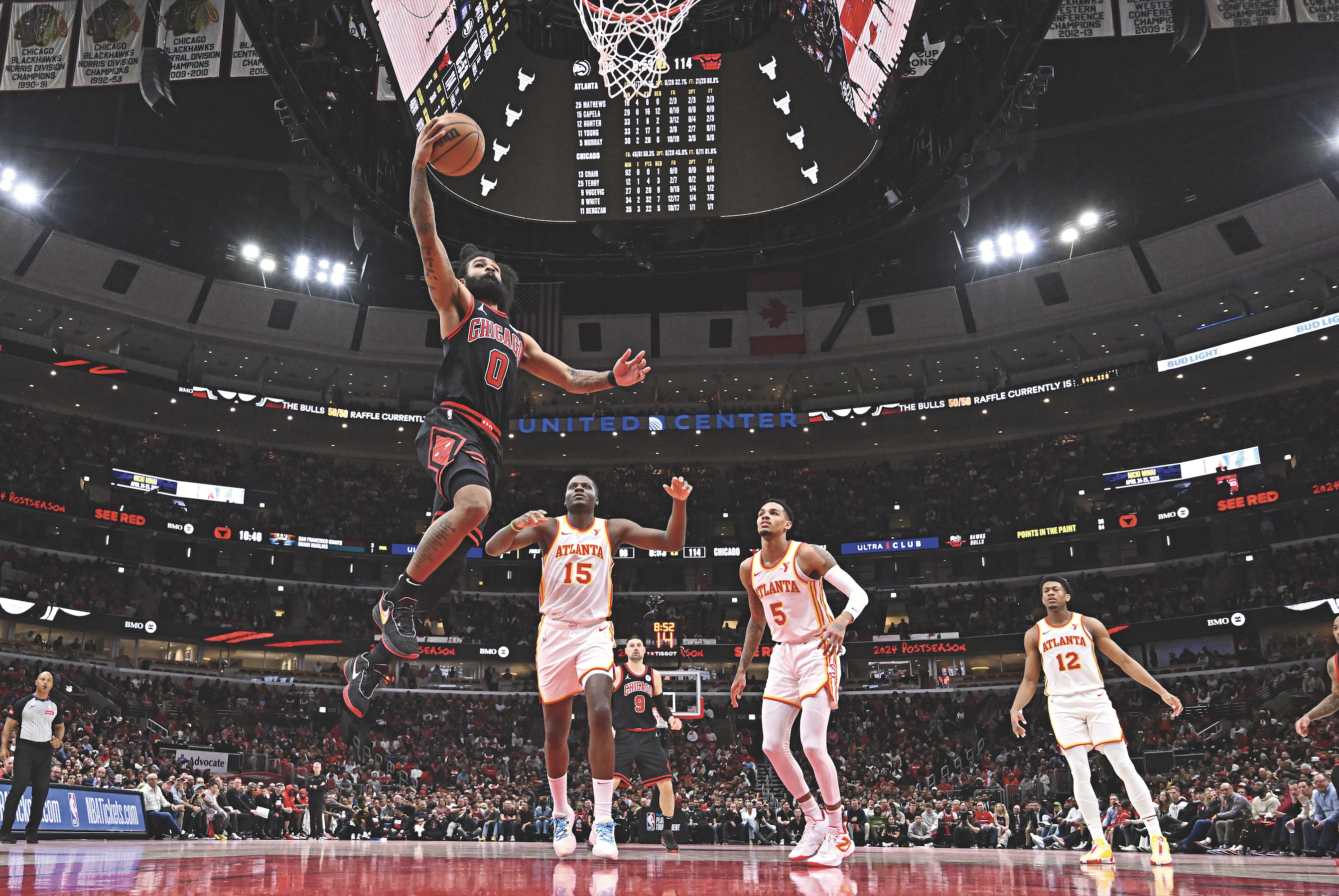Nothing worth having comes easy, and Coby White knows this as well as anybody. The 24-year-old Chicago Bulls guard is fresh off the best season of his career thus far. He showed flashes of brilliance early on despite struggling to carve out a steady role in the rotation, but this year, it all came together, and the North Carolina native finished second in the NBA’s Most Improved Player Award race.
We connected with Coby to speak about his offseason plans, becoming the go-to guy in Chicago, staying in the moment and more.
SLAM: How’s the offseason been so far?
Coby White: It’s been quiet, bro. I really haven’t been doing much because of how long the season was. I’ve been taking it easy—really just been in the weight room, tryna lay the foundation down before I get back on the court. I usually give myself two weeks [of rest], but this year I played a lot more minutes, so this offseason is a little different for me. I’m taking three to four weeks, and then I’ll really get back to it.
SLAM: You’re coming off the best season of your career so far—we’ll touch on that in a minute—but I want to take it back to last year. Was there anything you did differently last offseason in preparation for this season, or was it just a matter of everything finally coming together?
CW: I think last year, as far as on the court and in the weight room, the physical aspect of it was pretty much the same. What really changed for me was that I took the mental side of it differently; I took a different approach. Coach [Billy] Donovan really put it on my mind to transform myself mentally. He felt that was the next step for me. So, I started trying to grow mentally, doing little things such as reading more, meditating, putting myself on a set schedule, praying multiple times a day and things of that sort. And then Coach Donovan took me and a couple of the young guys to Colorado last year. We met with a mental coach, and he gave us little exercises. I just wanted to carry that to my summer training and into the season.
SLAM: You only started two games last year, but early on this season, it was clear you’d have a much bigger role. How was the transition for you establishing your role as the team’s lead guard?
CW: It was challenging at first, but it was fun. Obviously, things changed over the course of our season. Going into the year, I knew I was gonna have a big role, but by the end of the year, it was even bigger than I thought it was going to be. I just embraced the challenge. My teammates and coaching staff were supportive of me and patient with me. It was a learning experience. There was definitely a learning curve at the beginning. But once I got the hang of it and became accustomed to using my voice and being a leader, that’s when things just kind of clicked and I took off from there.
SLAM: Unlike many other lottery picks, you weren’t given the keys to your franchise right away. Can you speak to what staying the course looks like for you and how you stayed ready for the inevitable moment when you’d get the opportunity?
CW: It was hard at first, especially as a rookie. You kind of look around the League and see all your counterparts who were drafted around the same area as you, and you see a lot of guys playing 36 minutes, starting, leading their teams to wins and playing [in] those crunch-time moments. For me, I was coming off the bench, playing, like, 18 minutes a game. I think the mental part was the toughest for me. I’ve always been a hard worker and always worked on my game. I just wanted to show them that no matter what position you put me in, I’m going to continue to be myself and work how I always work in the gym. I just had to understand the mental part—it was a different type of adversity I had never been through in my life. But once I accepted the fact I was gonna have to work for this and be patient, I got a lot closer to God, especially his plan for me. I felt it in my spirit for the longest that my time was gonna come; I just had to be patient. This year, it finally came and I just thank God for allowing me to be in this position.

SLAM: Was there a moment early in the season that you could point to where it was like, This year’s going to be different?
CW: I think training camp just felt different. I just knew I couldn’t fail. I had the support of my teammates and my coaching staff, and I was more outspoken and the leader out there. Then, as the season started, I wasn’t very good—the first month, I was OK. I wasn’t myself the first month, but I remember talking to my brother, telling him I had this gut feeling that it was just all going to come together. Then, in December, things just clicked, and the confidence kept rising. Then, you know, you get comfortable [in your role], and you get the sense like: I belong here. This is who I am. And then I just kept getting better as the season went on.
SLAM: You finished second for the Most Improved Player Award; even though you didn’t win, is there any satisfaction in knowing that other people and your peers are considering you among the young stars in the League?
CW: You couldn’t go wrong [with any of the finalists for the MIP Award], but for me, it’s like—I lost. There isn’t really any gratification. Like, you either win or you lose and that’s just kind of how I see it. For me, it’s extra motivation, extra fuel—but it’s not animosity. Any one of us could have won it. In terms of being in conversations and people starting to recognize who I am—I try not to pay attention to it because I try not to get too high or too low. I enjoy the moments as they come. And then, after they go, it’s behind me. I had a great season, but I have to continue to build a foundation and continue to grow in every aspect of my game.

SLAM: Y’all fell just short of making the playoffs after losing in the play-in; what do you think is the next step for you to become the lead guard for a team that’s a consistent playoff contender?
CW: I think just continuing to build as a leader and use my voice. One of the hardest parts is the emotional aspect. There are so many emotions that go into one game, let alone the entire season. I’m an emotional guy; I wear my heart on my sleeve. When it comes to basketball, I care so much, and I’m emotional about it, and sometimes it’s affected me to the point where I’m not being the leader I should be. I have to be that rock for the team—that foundation for the team. I have to be the one to reel everybody back in. I’m learning in that area.
And I think this summer, I have to do a lot more conditioning. I can’t let fatigue play a factor [in] if I play well or not. I didn’t know I was gonna come in and play damn near 40 minutes a game. The role I had coming into the season, I was like the fourth option. By the end of the season, I was the first or second option. Towards the end of the season, when teams started adjusting to me and making things a lot harder for me, I feel like fatigue played a huge part in some of the games in which I didn’t play as well. I feel like taking a step in my conditioning and physicality will help me take the next step to where I want to be.
I’ll also work on being more creative on the ball. I’m learning how to get to my spots, learning how to play through physicality, because now, every night, I’m getting the first and second best defender on the team.
SLAM: Looking ahead to next season, what are some goals you’re aiming to accomplish?
CW: I think winning truly takes care of everything. But for me, individually, I think that next step is just becoming an All-Star. This past summer, I had one goal, and that was to prove to everyone that I deserve to be a lead guard in the NBA and that I can be a starting guard in the NBA. The one thing I want to do going into next year is just prove that I can sustain this level of play and also take a leap and become that All-Star. I feel like if I continue to work and be on the trajectory that I’m on, I think winning would make it an easy choice. For me, winning always comes before anything.
Photos via Getty Images.















